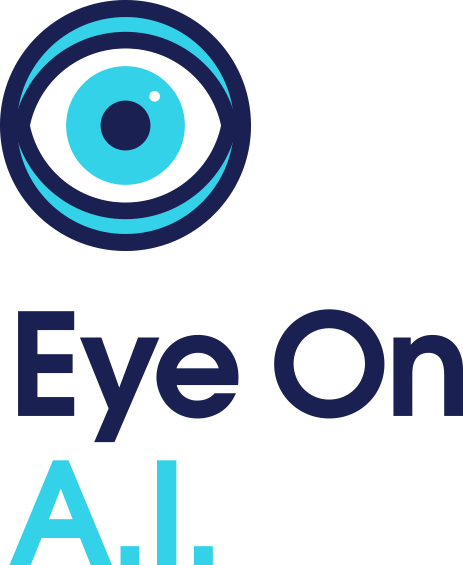Week Ending 2.16.2020
RESEARCH WATCH: 2.16.2020
This week was active for "Computer Science", with 1,417 new papers.
The paper discussed most in the news over the past week was "Information Leaks via Safaris Intelligent Tracking Prevention" by Artur Janc et al (Jan 2020), which was referenced 60 times, including in the article Apple's Tracking-Prevention Feature in Safari has a Privacy Bug in Schneier on Security. The paper author, Artur Janc (Google security engineer), was quoted saying "What you end up with is a personalized anti-tracking model baked into your browser".
Leading researcher Yoshua Bengio (Université de Montréal) published "Parameterizing Branch-and-Bound Search Trees to Learn Branching Policies".
This week was active for "Computer Science - Artificial Intelligence", with 143 new papers.
The paper discussed most in the news over the past week was "Predictive analysis of Bitcoin price considering social sentiments" by Pratikkumar Prajapati (Jan 2020), which was referenced 3 times, including in the article Bitcoin's Reddit Community better predictors of king coin's price than Google in Dailyhunt.
Leading researcher Yoshua Bengio (Université de Montréal) came out with "HighRes-net: Recursive Fusion for Multi-Frame Super-Resolution of Satellite Imagery".
This week was active for "Computer Science - Computer Vision and Pattern Recognition", with 226 new papers.
The paper discussed most in the news over the past week was by a team at Nanyang Technological University: "DeeperForensics-1.0: A Large-Scale Dataset for Real-World Face Forgery Detection" by Liming Jiang et al (Jan 2020), which was referenced 5 times, including in the article Best of arXiv.org for AI, Machine Learning, and Deep Learning – January 2020 in InsideBIGDATA.
Leading researcher Yoshua Bengio (Université de Montréal)
This week was active for "Computer Science - Computers and Society", with 36 new papers.
The paper discussed most in the news over the past week was "From Pick-Up Artists to Incels: A Data-Driven Sketch of the Manosphere" by Manoel Horta Ribeiro et al (Jan 2020), which was referenced 5 times, including in the article Study On Misogynist Men's Groups On The Internet Confirms The Obvious in IFLScience. The paper author, Summer Long, was quoted saying "eye-opening".
This week was very active for "Computer Science - Human-Computer Interaction", with 46 new papers.
The paper discussed most in the news over the past week was by a team at Huazhong University of Science and Technology: "Tiny Noise Can Make an EEG-Based Brain-Computer Interface Speller Output Anything" by Xiao Zhang et al (Jan 2020), which was referenced 3 times, including in the article Hacking brain-computer interfaces in ZDNet. The paper author, Dongrui Wu (Huazhong University of Science and Technology), was quoted saying "This article aims to expose a critical security concern in EEG-based BCI spellers and more broadly, EEG-based BCIs, which has received little attention before".
This week was extremely active for "Computer Science - Learning", with 614 new papers.
The paper discussed most in the news over the past week was by a team at Google: "Towards a Human-like Open-Domain Chatbot" by Daniel Adiwardana et al (Jan 2020), which was referenced 28 times, including in the article Google’s Meena is impressive, but AI chatbots are still “cheap imitations” of humans in The Next Web. The paper author, David Limp, was quoted saying "the holy grail of voice science."
Leading researcher Yoshua Bengio (Université de Montréal) published "HighRes-net: Recursive Fusion for Multi-Frame Super-Resolution of Satellite Imagery".
This week was active for "Computer Science - Multiagent Systems", with 23 new papers.
Over the past week, 33 new papers were published in "Computer Science - Neural and Evolutionary Computing".
The paper discussed most in the news over the past week was by a team at Google: "Towards a Human-like Open-Domain Chatbot" by Daniel Adiwardana et al (Jan 2020)
This week was active for "Computer Science - Robotics", with 62 new papers.
The paper discussed most in the news over the past week was by a team at University of Freiburg: "Learning Object Placements For Relational Instructions by Hallucinating Scene Representations" by Oier Mees et al (Jan 2020), which was referenced 1 time, including in the article Training robots to identify object placements by 'hallucinating' scenes in Tech Xplore. The paper author, Mees, was quoted saying "Our novel approach of hallucinating scene representations can also have multiple applications in the robotics and computer vision communities, as often robots often need to be able to estimate how good a future state might be in order to reason over the actions they need to take".
Leading researcher Pieter Abbeel (University of California, Berkeley) came out with "BADGR: An Autonomous Self-Supervised Learning-Based Navigation System".

